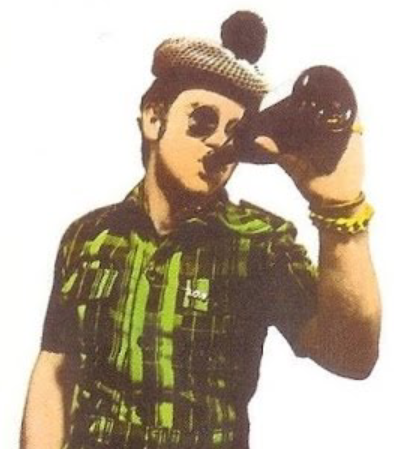I’ve been curious how many working researchers we’ve got in this community, and what you all do!
If you’re working in science (physical or social), engineering, etc in a research capacity, give a shout in the comments and let us know what you work on! Same goes for students and amateur scientists at any level. (And by amateur I mean those of you who are working on your own experiments but just not being paid for it / not working on a degree; I’m upset that “amateur” has a negative connotation, it shouldn’t.)
I’m currently a PhD candidate, working on transmission electron microscopy and electronic materials (mainly ferroelectrics). In the past I’ve been involved in research / product development in a few different industries, including medical devices, aerogels, and materials for RF devices.
I’m a PhD candidate too - my contract is finished now, but I am still writing my thesis. So I am currently at the awkward intersection of finishing a thesis and looking for a job.
My PhD focus is in applying time-resolved spectroscopic techniques to study the excited state dynamics of molecules. Basically, these are experiments in which a pulsed laser is used to excite the sample and a second probe light is used to measure a change in the absorption in response to the light. By measuring these changes in the absorption as a function of time, and applying quantum chemical methods to calculate the spectra of potential intermediates, one can sort of recreate a movie of what the molecule is doing after it absorbs light with a time resolution of femto to picoseconds. The materials that I study are organic dyes that are useful for microscopy, as well as molecules that respond to EUV light for applications in photonanolithography (for making the very small transistors in computer chips).
I am also an “amateur” scientist when it comes to biology, as many of my hobbies are nature-based and it’s not like I can turn off the science bug when it comes to hobbies.
Well that’s fascinating! The technique sounds a little bit like a cross between Raman and EXAFS/XANES? (Probably just because those are two techniques I happen to be familiar with though.)
Raman and EXAFS/XANES are techniques to probe different types of molecular transitions. Vibrational raman probes molecular vibrations, and XANES probes electronic transitions due to excitation of core electrons. Each technique will help you obtain different molecular properties. The standard approach is to apply these methods to do “static” absorption studies, meaning that one studies the transitions induced by these light sources in order to obtain molecular information of a given sample. The time-resolved techniques expand these measurements along the time dimension, so you can measure these properties but in a sample that is changing extremely quickly in response to a trigger (usually light).
So, it is not that the technique is a cross between these, but rather an approach to take Raman, or XANES, or IR-spectroscopy, or UV/Vis absorption spectroscopy, and then apply it in a time-resolved manner. You can usually take any spectroscopy technique and add “time-resolved” at the beginning and you will find someone doing that. Of course, some techniques are easier to perform in practice than others. I have done some time-resolved XANES experiments, and for those we need to go a synchrotron and the experiment is really tricky. A time-resolved UV/Vis can be done in many university labs. I don’t have practical experience with Raman experiments.
That’s a really clear explanation, thank you!
I’m a research professor of neurology, and my research focuses on developing novel cognitive assessments for measuring early-stage Alzheimer’s disease and other types of dementia.
That’s a field where it seems (to an outsider) like a lot has been happening recently! Glad to have you here!
You’d be correct! The new anti-amyloid drugs are very exciting, and it makes my work on preclinical Alzheimer’s even more fulfilling as it can have a real impact on getting people tested and treated as early as possible.
It’s science-y enough but I’m definitely not considered a scientist so much as a technologist. I work as a MRI (Magnetic Resonance Imaging) Technologist. Previously a X-Ray Technologist.
My machine does all the science for me but it’s a pretty neat concept. Using magnetic gradients and RF pulses at hydrogen protons to acquire accurate digital imaging.
Happy to have you! The science behind MRI is fascinating, and the machines themselves are really cool. Have you ever seen a magnet quench? I don’t think they’re really supposed to happen during normal operation, but some of the videos I’ve seen have been rather dramatic.
It is pretty crazy people were able to figure that all out and we are able obtain crazy detailed pictures without radiation.
No I haven’t seen it! Hoping to see a controlled quench someday but also hoping to avoid needing to use it in any emergency situations; it’ll have to be a damn near life/death situation to hit that button. Very costly decision. I guess there’s also a dwindling supply of helium in the world so that could get interesting as time goes on.
Yeah, helium being a finite resource was something that really surprised me when I first learned about it! Better to keep it inside the MRI as much as possible for sure
helium recovery and recycling has come a long way, and the costs of helium are now justifying the extra expense of the hardware, so I think that problem should abate somewhat in the coming years.
I’m a staff bioinformatics scientist at an academic institution, got my PhD a few years ago and wasn’t interested in a postdoc. I get to work on a huge range of research questions and lots of different technologies. It’s great!
Oh that’s rad! What’s it like being a staff scientist at an academic institution? I’m still trying to figure out exactly what I want to do after I graduate – I know I’m not interested in pursuing the tenure track, but I haven’t decided if I should go back into industry / look into staff science positions national labs / etc.
It has its pros and cons — I work on lots of projects and help with parts of grant writing, but I’m not the one guiding the big research goal/question (I appreciate that the questions are interesting but don’t care that much about the question usually). Because I work on so many projects I usually only have <1 full day a week to work on each one, so progress can be slow and managing expectations can be challenging. I am paid more than a postdoc but less than I would in industry. It is expected that I will mentor undergraduate students and teach workshops. These things might make a big difference re: how much you enjoy the job. Folks in this type of position are sometimes called research software engineers: https://society-rse.org/
Sounds cool, do you have any tips on what kinds of skills you need for a bioinformatics position? I have a background in biology, but some CS knowledge I have learnt myself, programming (unfortunately mainly python for now), linux, deploying stuff with docker, etc.
This all sounds like a solid start tbh, if you learn pandas and bio python i feel like you are basically there
I’m a postdoc, working on laser-plasma/ interactions and electron accelerators. My PhD work was on ultrafast electron diffraction.
ultrafast electron diffraction
That’s pretty fascinating stuff! I know a lot about electron diffraction in general (in the context of TEM/STEM/4D-STEM), but not ultrafast. What kind of processes were you studying with that method?
Our beamline is still very new (my main focus was actually on building/commissioning it), so for now, we’ve just been looking at relatively simple processes like the Debye-Waller effect, where the diffraction spots become weaker as the temperature rises.
The ultrafast capability comes from the electron beam having a sub-picosecond duration, which essentially corresponds to the shutter speed of a camera. By varying the delay between a pump laser and the electron probe and observing the change in intensity of the diffraction spots, we can figure out how the heat deposited by the laser diffuses through the sample, and make a “molecular movie” of this process. It’s in the same spirit as other pump-probe experiments, like what @Salamander does.
Oh wow, setting up a whole new beamline must have been quite the undertaking!
I actually do a lot of STEM simulations and having accurate Debye-Waller parameters is pretty important to get quantitatively accurate simulations of high-angle annular dark field images (since a lot of the intensity scattered out to those angles is due to thermal diffuse scattering in the crystal). So while they may be (comparatively) simple experiments, know that there are definitely those of us who really appreciate having access to the results!
I work at a company that makes large and small rocket engines (e.g., the ones on SLS/Artemis, and solids for a number of defense programs), and various electrical power systems (e.g., for the ISS and some of the Mars rovers). I manage the space software engineering organization.
Look at this rocket surgeon, over here. SMDH.
I’m just a software/systems guy; I work with a lot of genuine rocket scientists - they’re fun to work with.
working in a cultivated meat startup, msc in biotechnology, but now disillusioned and wanting to do something academic/more down to earth and helpful
That doesn’t feel helpful to you?
no, the technology is underdeveloped, and very resource intensive. I don’t think it is a viable alternative at all. Better to just eat what grows from the ground than spend so much time, money, energy forcing cells that don’t want to grow in such an artificial environment. I’ve also started to notice how it seems to be quite tied to EA and longtermism crowd, who are investing in it a lot.
True. It could still have benefits from a vegetarian or conservation perspective, though.
Have you thought about trying to get into genetically modified plant crops, then?
I did consider it yes, but those companies are evil too, they make a farmer reliant on a super crop that can’t produce its own seeds, and then make a mint by selling them seeds every year.
I’m a Data Scientist (physics PhD) for a large enterprise company. I’ve been in this field for the last decade and I’m kinda bored with it. I’m not exactly sure what to do next though…
Mmm yeah, I can imagine things might get a bit stale after a decade working on similar things. What was your physics PhD in, something you’d be interested in pursuing again maybe?
My thesis covered optoelectronic measurements of nanomaterials for novel photovoltaics. Even as a kid, I wanted some sort of career researching alternative energy, but those jobs sadly don’t exist.
Researching alternative sources of energy would certainly be a rewarding career. I’m a bit surprised to hear nobody’s doing it, I’d think there’d be companies trying to commercialize on the pretty massive progress we’ve seen in PV efficiency at the lab scale. I remember in my undergrad people were really excited about roll-to-roll manufacturing for flexible organic perovskite solar cells, but come to think of it I haven’t heard much about them in the last five years. I wonder what happened. Maybe just still to expensive to compete commercially with silicon PV?
Regardless, I hope you find a direction that’s fulfilling for you!
I’m a PhD candidate in inorganic and biochemistry! Loving the chem representation here, and loving OP’s username.
I work in mine closure. I create plans to re-integrate them back into the surrounding landscape, and provide valuable end land uses (not just those centred around ecosystem re-establishment).
I’m a professor of chemistry, I mainly do organometallic research but we’ve been branching out into other areas.
Very cool! My only experience with organometallics is with CVD and related technologies (like we’ve got one machine we use called a FIB – focused ion beam – that uses an organometallic as a carrier for platinum deposited as part of the process). Mainly I think of them as “probably toxic, probably pyrophoric, treat with extreme caution” sorts of chemicals.
I’m a postdoctoral researcher in chemical engineering with a background in mechanical engineering. I have been working on different materials (composites, nanocomposites, conductive coatings), but I am now working on an atmospheric water harvesting material to produce water in remote locations with low energy demands.
Graduate student in ecology, just finishing up.
what are you hoping to do afterward? I’ve always found ecology interesting
Congrats on (being close to) making it through!
I’m working on my Astrophysics PhD. I study “galactic cannibalism” aka how galaxies grow and change by eating smaller galaxies. My big focus is on teaching and outreach though rather than research.
Cool! Is this the kind of thing that’s going to happen between Andromeda and the Milky-way, or is that fundamentally different because they’re more similar in size?
Yep, MW and Andromeda merger will be a “major merger” that will have huge effects on both galaxies. The ones I work with are small (“dwarf”) galaxies that have a much smaller effect on the big one that eats them.
I’m an associate professor in computer science, currently working on stochastic algorithms (like genetic algorithms).
Until now, I’ve been working on quite abstract optimization problems, but I’d like to switch to more useful applications, like social inequalities or climate change.
I get that. Working on a more abstract problem should, in theory, help solve more practical problems down the line, but sometimes it just feels less satisfying that working on something where you can see the real world application and (hopefully) results. I’m definitely looking to do something practical with my experience once I’m finished with my PhD.








